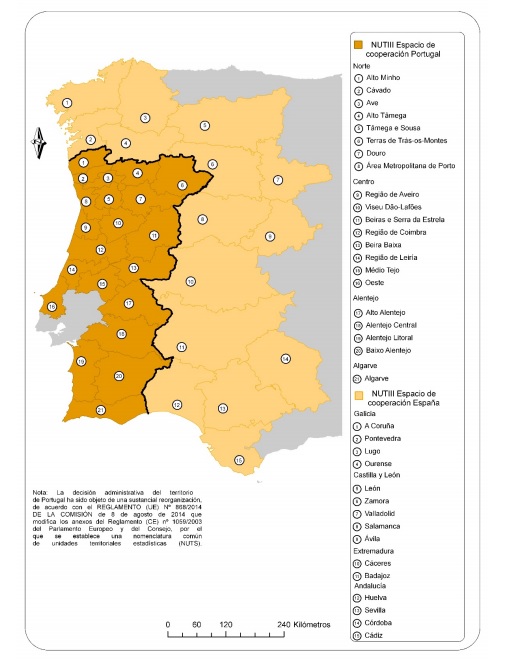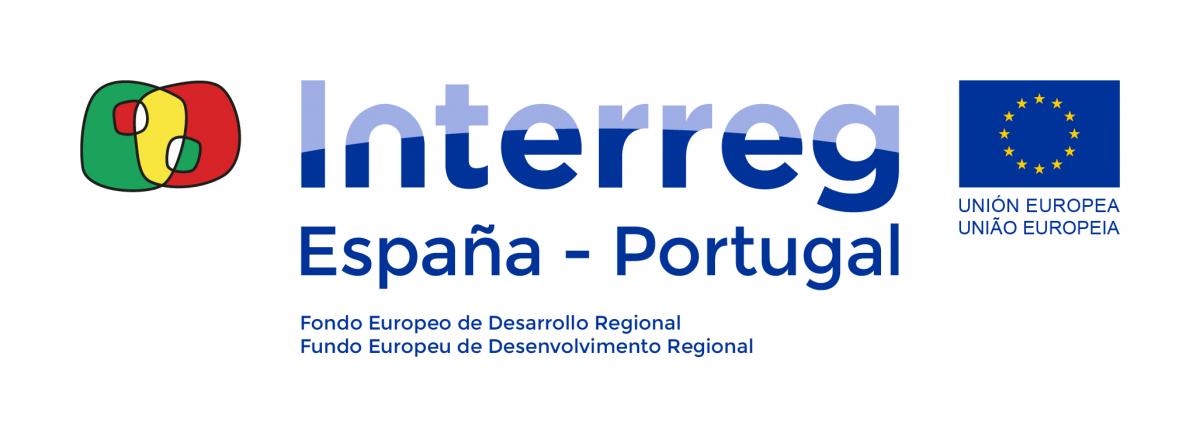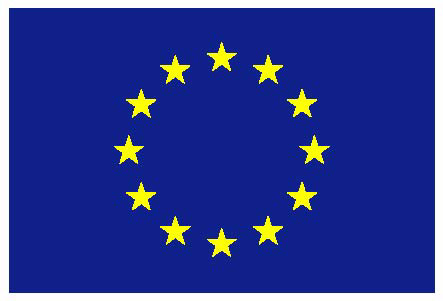About our 2014-2020 programme
The INTERREG VA Spain-Portugal cooperation programme promotes development along Europe's largest border.
SEE LINKS:
APPROVED PROJECTS AND PARTNERS' LIST
APPROVED PROJECTS: SEARCH BY THEMATIC AND OBJECTIVE
Díptico Programa Interreg España-Portugal | What´s Interreg?
The acronym POCTEP comes from "Operational Programme for Cross-Border Cooperation Spain-Portugal", an acronym for the name of the Program in the period 2007-2013, which was later renamed "Interreg Spain-Portugal" Cooperation Programme in the period 2014-2020.
The Cross-Border Area of Spain-Portugal is made up of 36 NUTS III belonging to both countries, ensuring the coherence and continuity of the zones established in the previous programming period:
-
Spain: Ourense, Pontevedra, Zamora, Salamanca, Cáceres, Badajoz, Huelva, A Coruña, Lugo, Ávila, León, Valladolid, Cádiz, Córdoba y Sevilla.
-
Portugal: Alto Minho, Cávado, Terras Tras-os-Montes, Douro, Beiras e Serra de Estela, Beira Baixa, Alto Alentejo, Alentejo Central, Baixo Alentejo, Algarve, Ave, Alto Tâmega, Tâmega e Sousa, Área Metropolitana do Porto, Viseu Dão-Lafões, Região de Coimbra, Médio Tejo, Região de Aveiro, Região de Leiria, Oeste y Alentejo Litoral.

6 areas of cooperation:
- Galicia / Norte de Portugal
- Norte de Portugal / Castilla y León
- Castilla y León / Centro Portugal
- Centro / Extremadura / Alentejo
- Alentejo / Algarve / Andalucía
- Plurirregional
Approved by the European Commission (EC) in its Decision C (2015) 893, on February 12, 2015, the INTERREG VA Spain - Portugal Cooperation Programme (POCTEP) 2014-2020 is the direct consequence of the favorable experience that since 1989 has meant the cooperation on the border line between the two countries that has allowed and that intends to continue advancing in the improvement of the quality of life of the inhabitants of the Cooperation Area.
The POCTEP 2014-2020 operates in five main areas or thematic objectives:
- Promote research, technological development and innovation, specifically:
- Improve scientific excellence in the Cross-border Cooperation Area and in research with the potential to be internationally competitive.
- Improve the participation of private companies in innovation processes and in market-related R&D activities (technological development, trial tests, innovation) that can be exploited commercially.
- Improve the competitiveness of small and medium-sized companies, specifically:
- Improve the necessary and favorable conditions for the appearance of new business initiatives, guaranteeing their sustainability and promoting their growth.
- Promote competitiveness in those sectors in which the Cooperation Area has competitive advantages.
- Promote adaptation to climate change in all sectors, and more particularly, promote the increase of territorial resilience to transboundary natural risks.
- Protect the environment and promote resource efficiency, specifically:
- Protect and enhance the cultural and natural heritage, as an economic base for the cross-border region.
- Improve the protection and sustainable management of natural spaces.
- Reinforce sustainable local development along the entire Spanish-Portuguese border.
- Increase efficiency levels in the use of natural resources to contribute to the development of the green economy in the area of cooperation.
-
Improvement of institutional capacity and public administration efficiency, consolidating new strategies for dialogue and interrelation, which allow the launching of new initiatives between the different actors that operate on the border.
POCTEP supports actions in favor of research, development and innovation, such as:
- Research and innovation activities, including networking.
- Technology transfer and university-business cooperation, especially for the benefit of SMEs.
- Research and innovation processes in SMEs.
It also includes actions related to business development and the promotion of quality employment:
- Promotion of entrepreneurship and entrepreneurship in SMEs.
- Business development of SMEs, support for mentor networks and support for entrepreneurship and incubation.
- Self-employment, entrepreneurship and business creation, including entrepreneurial micro and SMEs.
- Promotion of internationalization.
- Mobility of workers, companies and entrepreneurs.
Likewise, in terms of the environment, energy and ecological infrastructures, POCTEP foresees measures of:
- Adaptation to climate change and prevention and risk management.
- Development and promotion of the tourist potential of natural spaces.
- Protection and promotion of cultural assets and natural heritage.
- Treatment of household waste.
- Management and conservation of drinking water.
- Integrated pollution prevention and control.
Finally, the Program provides for other types of actions related to improving institutional capacity of administrations and public services through cross-border cooperation.
Universities, higher education institutions, Technology Centers, Research Institutes, Science and Technology Parks, Public Administrations, companies, Regional Development Agencies, Economic Development and Promotion Foundations, Chambers of Commerce, Companies, business groups, business associations, Services of Civil Protection, Hydrographic Confederations, Natural Parks and Associations for the defense and management of Natural Heritage, Associations and organizations of Civil Society.
Axis / Priority |
Total |
ERDF |
|---|---|---|
|
1. Research, technological development and innovation |
129.185.332 |
96.888.999 |
|
2. Competitiveness of small and medium-sized companies |
100.281.945 |
75.211.459 |
|
3. Environment, risks prevention and climate change |
193.789.055 |
145.341.791 |
|
4. Institutional capacity and public administration efficiency |
38.889.312 |
29.166.984 |
|
Technical assistance |
22.541.709 |
19.160.453 |
|
Total |
484.687.353 |
365.769.686 |
The Monitoring Committee of the Interreg V-A Spain-Portugal Programme (POCTEP) 2014-2020 was established at its first meeting on May 7, 2015, in Santiago de Compostela.
The Monitoring Committee is in charge of examining the execution of the Programme and the progress made in achieving its objectives. It is, therefore, responsible for the strategic management of the Program and will be chaired alternately by the representatives of the General Directorates of Community Funds (Spain) and the Agência para o Desenvolvimento e Coesão (Portugal). Main duties are:
- Hold a meeting at least once a year to examine the execution of the Program and the progress made in achieving its objectives, taking into account financial data, common and specific indicators of the Program, especially changes in the values of the performance indicators and progress towards achieving quantified target values, milestones defined in the performance framework and, where appropriate, the results of qualitative analyzes.
- Examine all matters affecting the Programme´s performance, including the findings of performance reviews.
- Respond to inquiries and, if deemed appropriate, issue an opinion on eventual modifications of the Programme proposed by the managing authority.
- Make observations to the managing authority about Programme´s execution and evaluation, including actions aimed at reducing the administrative burden for the beneficiaries; as well as monitoring the actions taken as a result of their observations.
Main documents:
- Programa Operativo (versión reprogramada de 15/09/2020)
Newsletter
Seleccione abajo para suscribirse
POCTEP Contacts
Contacts 2014-2020 | Contacts 2007-2013
- programa@poctep.eu
- (+34) 924 20 59 58
- Edificio Montevideo | C/ Ángel Quintanilla Ulla n°1, portal 3 | Entreplanta B, 06011, Badajoz (Spain)









